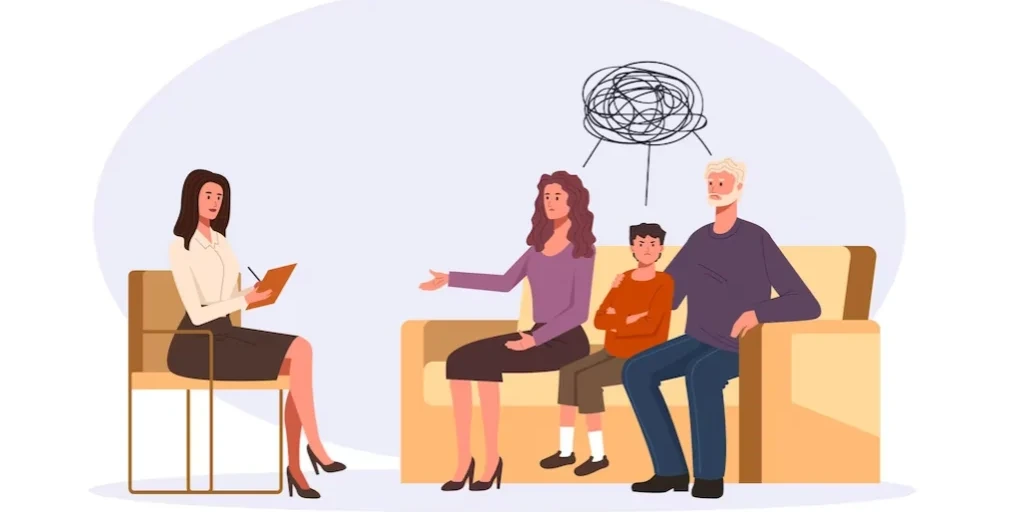24/7 Helpline:
(866) 899-221924/7 Helpline:
(866) 899-2219
Learn more about Depression Treatment centers in Costa Mesa
Depression Treatment in Other Cities

Other Insurance Options

Health Net

CareFirst

Magellan

Self-pay options

Amerigroup

Regence

Meritain

Cigna

Horizon Healthcare Service

Humana

Ambetter

EmblemHealth

Sliding scale payment assistance

Premera

Choice Care Network

Excellus

Health Choice

AllWell

Ceridian

Aetna

Action Consultants Therapy
Action Consultants Therapy is a private rehab located in Costa Mesa, California. Action Consultants ...

Windward Way Recovery
Windward Way Recovery is a private drug and alcohol rehabilitation facility in Newport Beach, Califo...

New Directions for Women
New Directions for Women (NDFW) is a drug and alcohol treatment provider offering addiction detox an...

Pat Moore Foundation
Pat Moore Foundation is a private rehab located in Costa Mesa, California. Pat Moore Foundation spec...

Clear Treatment – Orange County Detox
Clear Treatment – Orange County Detox is a private rehab located in Costa Mesa, California. Clear Tr...

Tree House Recovery
Tree House Recovery is a substance use disorder treatment center for men, located in Costa Mesa, Cal...

Miramar Recovery Center – Costa Mesa
Miramar Recovery Center is a proven substance abuse and dual diagnosis treatment for men and women. ...

Clear Life Recovery
Clear Life Recovery provides a full continuum of care from detox through sober living. They offer de...

Resurgence Behavioral Health
Resurgence Behavioral Health is an accredited substance abuse rehab center in Costa Mesa, California...

Pillars Recovery
Pillars Recovery is a residential addiction treatment facility in Orange County, CA. We help men and...

New Existence Recovery
New Existence Recovery is a state-of-the-art substance abuse recovery facility in Costa Mesa, Califo...

South Coast Behavioral Health
South Coast Behavioral Health, in Costa Mesa, California, is a luxury drug and alcohol rehab for adu...

Keystone Sober Living – Keystone I
Keystone Sober Living - Keystone 1 is a substance abuse sober living facility in Costa Mesa, Califor...

South Coast Counseling
South Coast Counseling is a nonprofit drug and alcohol rehabilitation facility in Costa Mesa, Califo...

Clean Path Behavioral Health
Clean Path Behavioral Health is a private substance abuse center in Costa Mesa, California. They pro...

Breakaway Health Corporation – Breakaway
BreakAway Health Corporation is a private substance abuse and mental health treatment facility in Co...

Yellowstone Recovery
Yellowstone Recovery is a nonprofit drug and alcohol addiction recovery center in Costa Mesa, Califo...

The Chadwick House
The Chadwick House is a private substance abuse recovery house in Huntington Beach, California, a sh...












HERO House
HERO House is a private rehab located in Costa Mesa, California. HERO House specializes in the treat...

The Hope Institute
The Hope Institute is a private rehab located in Costa Mesa, California. The Hope Institute speciali...

Sure Haven Recovery
Sure Haven Recovery is a private rehab located in Costa Mesa, California. Sure Haven Recovery specia...

Serenity Shores Recovery Center
Serenity Shores Recovery Center is a private rehab located in Costa Mesa, California. Serenity Shore...

Upfront Recoveries Drug Rehab of Costa Mesa
Upfront Recoveries Drug Rehab of Costa Mesa is a private rehab located in Costa Mesa, California. Up...

The Tree House
The Tree House is a private rehab located in Costa Mesa, California. The Tree House specializes in t...

First House Sober Living Homes of Orange County
First House Sober Living Homes of Orange County is a private rehab located in Costa Mesa, California...

Recovery Center
Recovery Center is a private rehab located in Costa Mesa, California. Recovery Center specializes in...

Northbound Treatment Services – East 18th Street
Northbound Treatment Services offers residential detox and an observation home located in beautiful ...

Northbound Treatment Services – Joshua House
Northbound Treatment Services - Joshua House’s main administrative and corporate offices are located...

Hotel California by the Sea
Hotel California by the Sea - 17th Street is dedicated to provide outpatient services for those indi...

Hotel California by the Sea – Sandy’s Place
Hotel California by the Sea–Sandy’s Place is a luxury, 12 step-focused drug and alcohol rehab and du...

Rock Solid Recovery
Rock Solid provides a men-only, safe, structured and confidential treatment environment where client...

Asana Recovery
Asana Recovery is a private substance abuse rehabilitation facility in Costa Mesa, California. They ...

Safe Harbor Treatment Center for Women – Bernard Street
Safe Harbor Treatment Center for Women - Bernard Street is a private drug and alcohol addiction trea...

Sober Living Drug Rehab
Sober Living Drug Rehab is a luxury substance abuse rehabilitation facility in Costa Mesa, Californi...

Wel – Mor Psychology Group
Wel - Mor Psychology Group is a private mental health substance abuse program in Laguna Hills, Calif...

Pacific Shores Recovery
Pacific Shores is a private substance abuse recovery program near the scenic shores of Newport Beach...

Pace Recovery Center
PACE Recovery Center is a private mental health and substance abuse recovery center in Newport Beach...

Lead Recovery Center
LEAD Recovery Center is a private substance abuse recovery center in Orange, California, south of Gr...

California Recovery
California Recovery is a private substance abuse recovery facility in Costa Mesa, California, a shor...

Supportive Recovery Services
Supportive Recovery Services is a private substance abuse rehabilitation program in Costa Mesa, Cali...

Balboa Horizons Treatment Services
Balboa Horizons Treatment Services is a private substance abuse recovery center in Costa Mesa, Calif...

Safe Harbor Treatment Center for Women – Knox Street
Safe Harbor Treatment Center for Women - Knox Street is a private substance abuse treatment facility...

Beginnings Treatment Centers
Beginnings Treatment Centers is a private substance abuse treatment program in Costa Mesa, Californi...

Northbound Treatment Services – Behr Center
Northbound Treatment Services - Behr Center is a private substance abuse treatment center in Costa M...

Gold Coast Counseling Center
Gold Coast Counseling Center is a state accredited DUI school for those with substance abuse in Cost...

